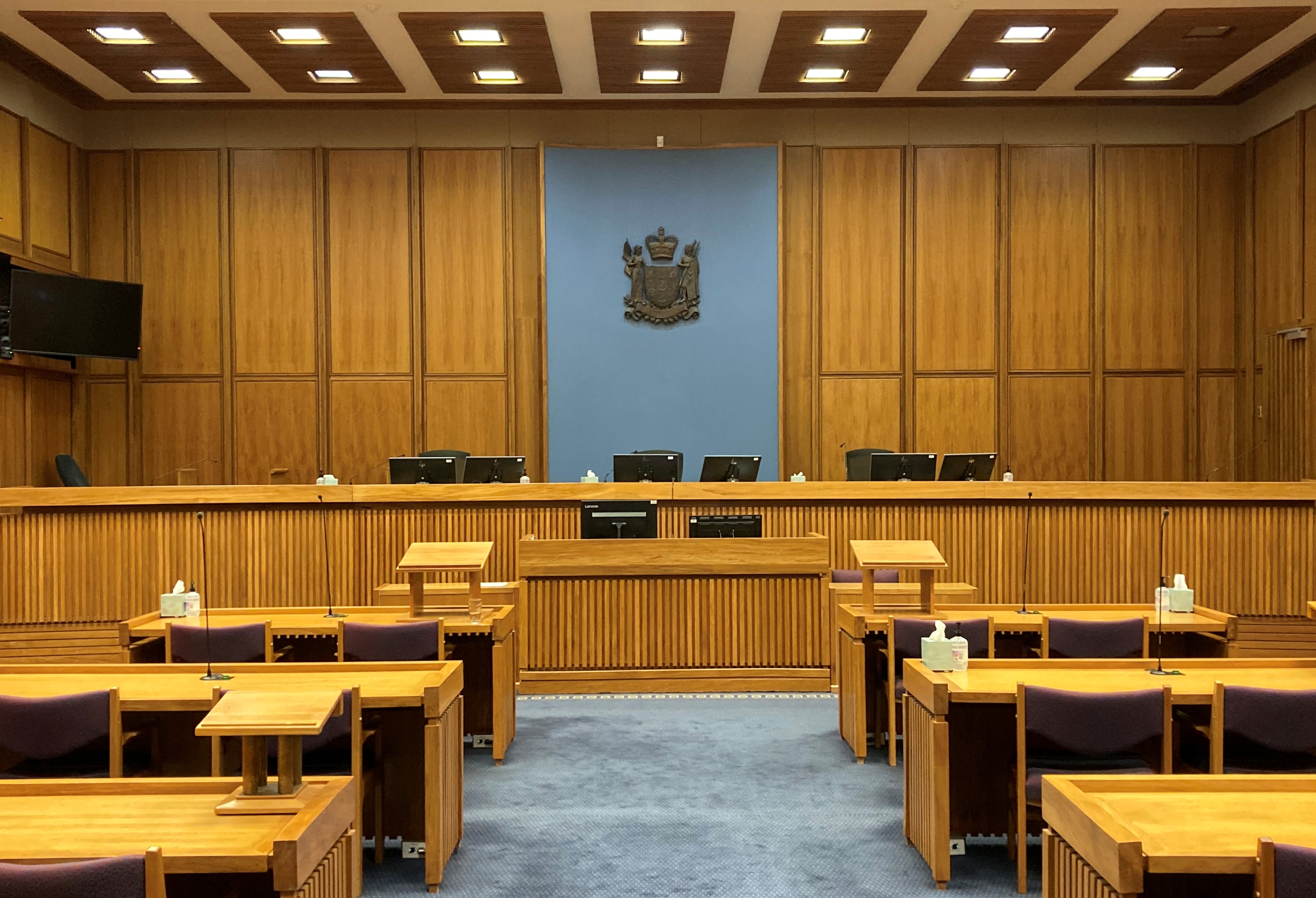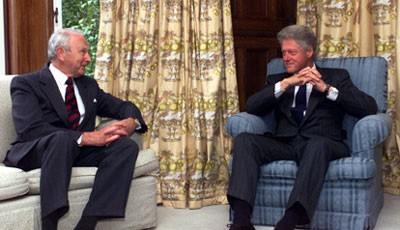|
Moffat V Moffat
Moffat v Moffat 9841 NZLR 600 is a leading New Zealand case regarding unconscionable bargains. Background Mr and Mrs Moffat after 18 years of marriage, separated and entered into a separation agreement. The separation agreement was highly one sided in favour of Mr Moffat, which not only granted him full custody of their 4 children, but also the ownership of the matrimonial house, and all its possessions. Prior to accepting, Mrs Moffat was advised by her husband's solicitor to get legal advice, but declined to do so. She signed an acknowledgement confirming this. Mrs Moffat subsequently came to her senses and tried to have this one sided agreement set aside due to it being an unconscionable bargain. She argued, that when she entered into the agreement, she was unwell both physically and mentally, thought she might have been pregnant to a man she was having an affair with, had not taken legal advice, nor did she know the value of her interest in their house and claimed that her ... [...More Info...] [...Related Items...] OR: [Wikipedia] [Google] [Baidu] |
Court Of Appeal Of New Zealand
The Court of Appeal of New Zealand is the principal intermediate appellate court of New Zealand. It is also the final appellate court for a number of matters. In practice, most appeals are resolved at this intermediate appellate level, rather than in the Supreme Court. The Court of Appeal has existed as a separate court since 1862 but, until 1957, it was composed of judges of the High Court sitting periodically in panels. In 1957 the Court of Appeal was reconstituted as a permanent court separate from the High Court. It is located in Wellington. The Court and its work The President and nine other permanent appellate judges constitute the full-time working membership of the Court of Appeal. The court sits in panels of five judges and three judges, depending on the nature and wider significance of the particular case. A considerable number of three-judge cases are heard by Divisional Courts consisting of one permanent Court of Appeal judge and two High Court judges seconde ... [...More Info...] [...Related Items...] OR: [Wikipedia] [Google] [Baidu] |
Duncan McMullin
Sir Duncan Wallace McMullin (1 May 1927 – 26 June 2017) was a New Zealand jurist. He was a judge of the Court of Appeal of New Zealand, Court of Appeal of Fiji and Cook Islands Court of Appeal. Early life and family Born in the Auckland suburb of Mount Eden on 1 May 1927, McMullin was the son of Charles James McMullin and Kathleen Annie McMullin (née Shout). He was educated at Auckland Grammar School from 1940, and went on to study at Auckland University College, from where he graduated LLB in 1950. He married Isobel Margaret Atkinson in about 1954, and they had four children. Career Following his graduation, McMullin practised as a barrister and solicitor before serving as a judge of the Supreme Court (now the High Court) and the Court of Appeal. He chaired the Royal Commission on Contraception, Sterilisation and Abortion between 1975 and 1977, and also served as chair of the Wanganui Computer Centre policy committee, the New Zealand Conservation Authority, and the Marke ... [...More Info...] [...Related Items...] OR: [Wikipedia] [Google] [Baidu] |
Edward Somers
Sir Edward Jonathan Somers (9 September 1928 – 3 June 2002) was a New Zealand jurist and member of the Privy Council. Biography Somers was born in Christchurch in 1928, and was educated at Christ's College and the University of Canterbury, where he gained a Bachelor of Arts and a Bachelor of Laws. In 1952, Somers became engaged to Mollie Louise Morison, and they later married and went on to have three children. Somers practised as a barrister and solicitor between 1952 and 1971, and solely as a barrister thereafter. In 1973, he was appointed Queen's Counsel, and the following year he became a judge of the Supreme Court (now High Court). He was appointed a judge of the Court of Appeal in 1981, a role from which he retired in 1990.Sir Edward Somers . Bloody Sunday Trust. Retrieved 18 May 2013. In 1981, he was also appointed ... [...More Info...] [...Related Items...] OR: [Wikipedia] [Google] [Baidu] |
Michael Hardie Boys
Sir Michael Hardie Boys, (born 6 October 1931) is a New Zealand retired lawyer, judge, and jurist who served as the 17th Governor-General of New Zealand, in office from 1996 to 2001. Early life and family Hardie Boys was born in 1931 in Wellington. His father was the Hon Reginald Hardie Boys (1903–1970), a judge of the Supreme Court. After his schooling at Hataitai School and Wellington College, Hardie Boys gained a Bachelor of Arts and Bachelor of Laws from Victoria University College. Hardie Boys married Mary Zohrab in 1957. They have two sons, two daughters and eight grandchildren. Judge of the High Court A lawyer by profession, Hardie Boys became a Judge of the High Court of New Zealand in 1980 (prior to 1980, the name was Supreme Court, i.e. he sat in the same court that his father had). In 1989 he was elevated to the Court of Appeal, and was appointed as a Privy Counsellor. In 1994 he was elected as an Honorary Bencher at Gray's Inn, and in 1995 became an Honorar ... [...More Info...] [...Related Items...] OR: [Wikipedia] [Google] [Baidu] |
Unconscionable Bargain
Unconscionability in English law is a field of contract law and the law of trusts, which precludes the enforcement of voluntary (or consensual) obligations unfairly exploiting the unequal power of the consenting parties. "Inequality of bargaining power" is another term used to express essentially the same idea for the same area of law, which can in turn be further broken down into cases on duress, undue influence and exploitation of weakness. In these cases, where someone's consent to a bargain was only procured through duress, out of undue influence or under severe external pressure that another person exploited, courts have felt it was unconscionable (i.e., contrary to good conscience) to enforce agreements. Any transfers of goods or money may be claimed back in restitution on the basis of unjust enrichment subject to certain defences. Considerable controversy is still present over whether "iniquitous pressure" must actually be exercised by a defendant in order for a voluntar ... [...More Info...] [...Related Items...] OR: [Wikipedia] [Google] [Baidu] |
Court Of Appeal Of New Zealand Cases
A court is any person or institution, often as a government institution, with the authority to adjudicate legal disputes between parties and carry out the administration of justice in civil, criminal, and administrative matters in accordance with the rule of law. In both common law and civil law legal systems, courts are the central means for dispute resolution, and it is generally understood that all people have an ability to bring their claims before a court. Similarly, the rights of those accused of a crime include the right to present a defense before a court. The system of courts that interprets and applies the law is collectively known as the judiciary. The place where a court sits is known as a venue. The room where court proceedings occur is known as a courtroom, and the building as a courthouse; court facilities range from simple and very small facilities in rural communities to large complex facilities in urban communities. The practical authority given t ... [...More Info...] [...Related Items...] OR: [Wikipedia] [Google] [Baidu] |
1984 In New Zealand Law
Events January * January 1 – The Bornean Sultanate of Brunei gains full independence from the United Kingdom, having become a British protectorate in 1888. * January 7 – Brunei becomes the sixth member of the Association of Southeast Asian Nations (ASEAN). * January 10 ** The United States and the Vatican (Holy See) restore full diplomatic relations. ** The Victoria Agreement is signed, institutionalising the Indian Ocean Commission. *January 24 – Steve Jobs launches the Macintosh personal computer in the United States. February * February 3 ** Dr. John Buster and the research team at Harbor–UCLA Medical Center announce history's first embryo transfer from one woman to another, resulting in a live birth. ** STS-41-B: Space Shuttle ''Challenger'' is launched on the 10th Space Shuttle mission. * February 7 – Astronauts Bruce McCandless II and Robert L. Stewart make the first untethered space walk. * February 8– 19 – The 1984 Winter Olympics are held in Sarajev ... [...More Info...] [...Related Items...] OR: [Wikipedia] [Google] [Baidu] |
1984 In Case Law
Events January * January 1 – The Bornean Sultanate of Brunei gains full independence from the United Kingdom, having become a British protectorate in 1888. * January 7 – Brunei becomes the sixth member of the Association of Southeast Asian Nations (ASEAN). * January 10 ** The United States and the Vatican City, Vatican (Holy See) restore full diplomatic relations. ** The Victoria, Seychelles, Victoria Agreement is signed, institutionalising the Indian Ocean Commission. *January 24 – Steve Jobs launches the Macintosh 128K, Macintosh personal computer in the United States. February * February 3 ** Dr. John Buster and the research team at Harbor–UCLA Medical Center announce history's first embryo transfer from one woman to another, resulting in a live birth. ** STS-41-B: Space Shuttle Challenger, Space Shuttle ''Challenger'' is launched on the 10th Space Shuttle mission. * February 7 – Astronauts Bruce McCandless II and Robert L. Stewart make the first untethered spac ... [...More Info...] [...Related Items...] OR: [Wikipedia] [Google] [Baidu] |



